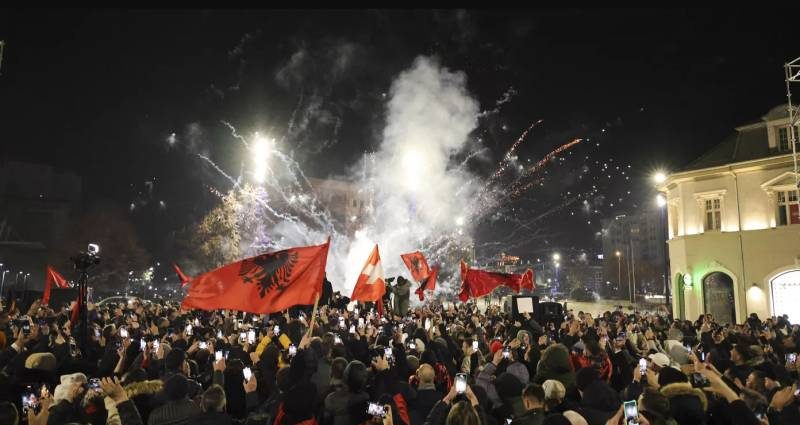Over a month after voting, Kosovo officials declared on Saturday that Prime Minister Albin Kurti’s ruling party won the most parliamentary seats in the February elections but lacked the numbers to establish a majority administration.
Following repeated delays, the Central Election Commission declared that the February 9 election results had finally been validated.
The survey contrasted Kurti’s efforts to eliminate Serbia’s influence more than 15 years after Kosovo declared independence with the opposition’s desire to improve the economy in one of Europe’s poorest regions.
With the ballots tabulated, no party won a clear majority in the 120-seat parliament, paving the way for weeks, if not months, of coalition discussions or another round of elections.
Compared to 2021, when they obtained slightly more than 50% of the vote, Kurti’s ruling Vetevendosje (“Self-Determination”) party (VV) received 42%, or 48 seats.
With 24 seats and 21% of the vote, the right-wing Democratic Party of Kosovo (PDK) finished second.
The Democratic League of Kosovo (LDK), which garnered 18 percent and 20 seats, finished third.
Additionally, minority parties have twenty seats allocated out for them, including 10 for Kosovo’s Serbs, who are vastly outnumbered by ethnic Albanians.
The late 1990s saw a terrible struggle between Kosovo and Serbia, prompting NATO involvement and Belgrade’s departure from the autonomous province.
Since 2008, Serbia has refused to recognize its subsequent declaration of independence.
Kurti’s time in power was chaotic.
Tensions rose in March 2023 as negotiations between Kosovo and Serbia, which were backed by the US and the EU, came close to failing.
Following the event, rioting Serbs attacked NATO peacekeepers, while a deadly armed standoff in the north heightened regional tensions.
Kurti also launched a deliberate campaign to dismantle the last Serbian enterprises in Kosovo, destroying banks, post offices, and tax offices funded by Belgrade and prohibiting Serbian money and license plates.
Throughout the tumult, Kurti stayed steady, even if it meant alienating Kosovo’s supporters in the United States and Europe.


